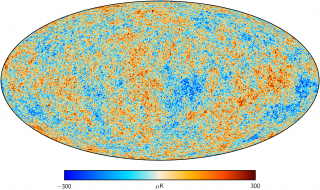Bibcode
Bersanelli, M.; Mandolesi, N.; Butler, R. C.; Mennella, A.; Villa, F.; Aja, B.; Artal, E.; Artina, E.; Baccigalupi, C.; Balasini, M.; Baldan, G.; Banday, A.; Bastia, P.; Battaglia, P.; Bernardino, T.; Blackhurst, E.; Boschini, L.; Burigana, C.; Cafagna, G.; Cappellini, B.; Cavaliere, F.; Colombo, F.; Crone, G.; Cuttaia, F.; D'Arcangelo, O.; Danese, L.; Davies, R. D.; Davis, R. J.; de Angelis, L.; de Gasperis, G. C.; de La Fuente, L.; de Rosa, A.; de Zotti, G.; Falvella, M. C.; Ferrari, F.; Ferretti, R.; Figini, L.; Fogliani, S.; Franceschet, C.; Franceschi, E.; Gaier, T.; Garavaglia, S.; Gómez, M. F.; Gorski, K.; Gregorio, A.; Guzzi, P.; Herreros, J. M.; Hildebrandt, S. R.; Hoyland, R.; Hughes, N.; Janssen, M.; Jukkala, P.; Kettle, D.; Kilpiä, V. H.; Laaninen, M.; Lapolla, P. M.; Lawrence, C. R.; Lawson, D.; Leahy, J. P.; Leonardi, R.; Leutenegger, P.; Levin, S.; Lilje, P. B.; Lowe, S. R.; Lubin, P. M.; Maino, D.; Malaspina, M.; Maris, M.; Marti-Canales, J.; Martinez-Gonzalez, E.; Mediavilla, A.; Meinhold, P.; Miccolis, M.; Morgante, G.; Natoli, P.; Nesti, R.; Pagan, L.; Paine, C.; Partridge, B.; Pascual, J. P.; Pasian, F.; Pearson, D.; Pecora, M.; Perrotta, F.; Platania, P.; Pospieszalski, M.; Poutanen, T.; Prina, M.; Rebolo, R.; Roddis, N.; Rubiño-Martin, J. A.; Salmon, M. J.; Sandri, M.; Seiffert, M.; Silvestri, R.; Simonetto, A.; Sjoman, P.; Smoot, G. F.; Sozzi, C.; Stringhetti, L. et al.
Bibliographical reference
Astronomy and Astrophysics, Volume 520, id.A4
Advertised on:
9
2010
Journal
Citations
134
Refereed citations
120
Description
In this paper we present the Low Frequency Instrument (LFI), designed
and developed as part of the Planck space mission, the ESA programme
dedicated to precision imaging of the cosmic microwave background (CMB).
Planck-LFI will observe the full sky in intensity and polarisation in
three frequency bands centred at 30, 44 and 70 GHz, while higher
frequencies (100-850 GHz) will be covered by the HFI instrument. The LFI
is an array of microwave radiometers based on state-of-the-art indium
phosphide cryogenic HEMT amplifiers implemented in a differential system
using blackbody loads as reference signals. The front end is cooled to
20 K for optimal sensitivity and the reference loads are cooled to 4 K
to minimise low-frequency noise. We provide an overview of the LFI,
discuss the leading scientific requirements, and describe the design
solutions adopted for the various hardware subsystems. The main drivers
of the radiometric, optical, and thermal design are discussed, including
the stringent requirements on sensitivity, stability, and rejection of
systematic effects. Further details on the key instrument units and the
results of ground calibration are provided in a set of companion papers.
Related projects

Anisotropy of the Cosmic Microwave Background
The general goal of this project is to determine and characterize the spatial and spectral variations in the temperature and polarisation of the Cosmic Microwave Background in angular scales from several arcminutes to several degrees. The primordial matter density fluctuations which originated the structure in the matter distribution of the present
Rafael
Rebolo López